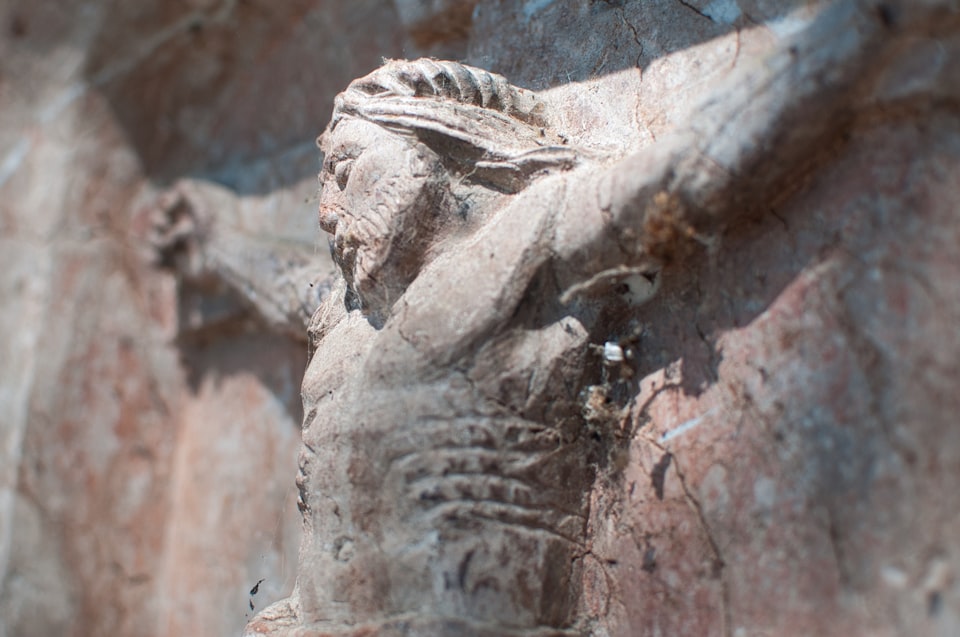Firm Foundation: Part 15

Crucified
Most, if not all, of us are familiar with the crucifixion story whether we’ve heard it in church, seen it in movies or celebrated it on special holidays (i.e., Easter, Passover, etc.). What we need to understand is what the crucifixion of the Lord Jesus Christ means to us.
In the Roman Empire, crucifixion wasn’t only about death. It was about public disgrace. The problem with being crucified wasn’t just that it would kill you but that it would humiliate you at the same time. We’ve pretty much understood the pain inflicted upon the accused on the cross but we don’t often associate crucifixion with humiliation. The pain of the soul—humiliation—can be even worse than the physical pain of crucifixion.
Interestingly, Psalm 79 describes the battle of Jerusalem with a neighboring army:
Oh God, the nations have come into your inheritance; they have defiled your hoy temple; they have laid Jerusalem in ruins. They have given the bodies of your servants to the birds of the air for food, the flesh of your faithful to the wild animals of the earth. They have poured out their blood like water all around Jerusalem, and there was no one to bury them. (Ps 79:1-3)
This list of horrors culminates in the worst fate of all: public disgrace.
We have become a taunt to our neighbors, mocked and derided by those around us. (Ps 79:4)
It is as if to say: we have been butchered—and, what’s worse, humiliated! Jesus when to his death reciting a psalm of humiliation:
My God, my God, why have you forsaken me? … I am a worm, and not human; scorned by others, and despised by the people. All who see me mock at me; they make mouths at me, they shake their heads. (Ps 22:1,6-7)
To be crucified was to be cast out of the human community, rejected by God and the world. It was literally a fate worse than death.
The humiliation of Jesus’ death made a deep impression on his early followers. Quoting an early Christian hymn, Paul describes the whole life of Jesus as a descent into humiliation and disgrace. “He emptied. Himself, taking the form of a slave” … he “humbled himself and became obedient to the point of death—even death on a cross” (Phil 2:7-8). Jesus descended to the lowest run on the social ladder. He became a slave and died a slave’s death.
Though he possessed the highest honor, he embraced the worst disgrace. The world was saved by Jesus’ shame: that is the scandalous message of the cross.
Jesus’ followers were the first people in the history of the world to describe humility as a virtue. Paul reminds the Philippian believers that they ought to have the “same mind” as Christ (Phil 2:5), renouncing honor and becoming like slaves in service to one another. In ancient Rome culture, the whole purpose of life was to acquire honor and to shun whatever might diminish one’s reputation. To be humble was the worst thing that could happen to a person. Yet the earliest Christians scorned pride and elevated humility. Paul calls himself a “slave of Jesus Christ” (Romans 1:1), as if such slavery were the highest honor in the world.
The message of a humble Lord was a shocking thing to hear in the ancient world. Yet today if anyone is asked whether it’s better to devote one’s life to self-aggrandizement or to service, most would admit that a life of service is better. The message of the cross has inverted the ancient values of honor and shame.
Jesus’ shocking claim that it is better to serve than to be served (Mark 10:45) is accepted today as if it were plain common sense. We take it for granted that nurses and caretakers deserve special respect, and that the poor and powerless have a special dignity.
Because, today, the virtue of humility is taken for granted, we no longer feel the original scandal of the gospel. We are no longer offended by Jesus’ shame. But it was his shameful death that passed judgment on the world’s moral order and laid bare a new order of righteousness. Up as become down; down has become up. In Jesus, God …
Has brought down the powerful from their thrones, and lifted up the lowly; he has filled the hungry with good things, and sent the rich away empty. (Luke 1:52-53)






Member discussion